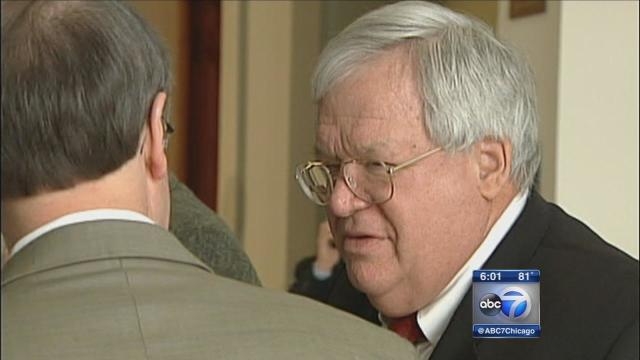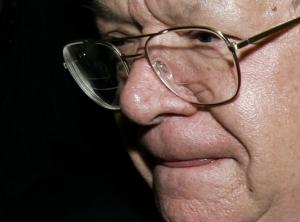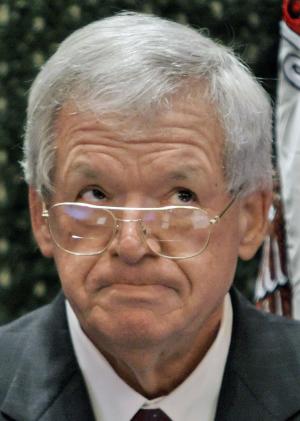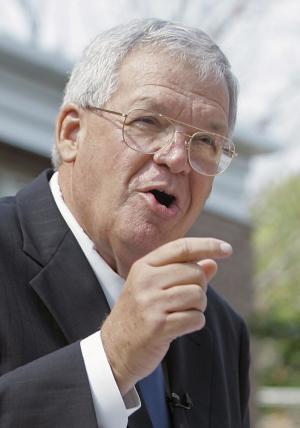Elderly victim scammed out of more than $8 million in charity fraud, police say
Joseph Edison, also known as Joseph Edison Fernando, 66, of Calgary, has been charged along with two other Calgarians in a multi-million dollar fraud investigation between December 2014 and May 2015. Investigators believe other people may have had financial dealings with the man, who goes by multiple aliases. Courtesy Calgary Police Service / Calgary Herald Various fake charities were used by a man known in Calgary’s charitable community to bilk an elderly victim of $8 million over 15 years, say police.
Three Calgarians have been charged as part of an ongoing fraud investigation, which police say may be connected to an international crime ring.
“Something of this scope suggests connections across the world,” said Staff Sgt. Kristie Verheul of the Calgary Police Service’s economic crimes unit. “I would compare this case to a Pandora’s box.”
Calgary police allege the main suspect used fake charities as a front to persuade the victim to invest large quantities of money, which the victim believed was guaranteed through various international means and had a high rate of return on investment. They began investigating in December 2014.
Police say the culprit had the investor pay large sums of money to have the funds released from holdings. It’s believed the money was actually funnelled through the charities to international accounts. The victim lost $8 million over 15 years.
Two people were charged, a third remains outstanding on warrants, and a fourth was arrested and later released, although police continue to investigate her involvement with the case. All involved live in Calgary.
 |
| Karatbars of gold confiscated by police in $8M fraud investigation. |
Joseph Edison, also known as Joseph Edison Fernando, 66, was charged with fraud over $5,000, theft over $5,000 and forgery. Police say he is suspected to be the main individual behind the alleged crimes and goes by multiple aliases.
Stefanie Haase-Fernando, 37, was charged with fraud over $5,000 and theft over $5,000.
Warrants have been issued for Anshul Edison Fernando, 39, for fraud over $5,000 and theft over $5,000.
Joseph Edison is the father of Anshul Edison Fernando, who is married to Haase-Fernando. Facebook profiles appearing to belong to the couple suggest they have a young son.
Calls to numbers listed for Joseph Edison’s wife, Swati Edison, were not answered.
The economic crimes unit believes that Joseph Edison was introduced to the victim and struck up a friendship with him.
“That relationship was abused,” said Verheul.
Investigators believe the following charities were used to defraud the victim, all of which police say were determined to be fraudulent and not registered with the Canada Revenue Agency:
- Humanitarian Foundation of Canada;
- World Job and Food Bank;
- Canadian Organization for International Development Strategies Foundation;
- Lepidoptera Inc.;
- Antennae Inc.;
- Calgary Community Outreach Services Society
Phone calls to all organizations except Lepidoptera Inc., for which a number wasn’t found, were unanswered. Some lines were disconnected. Others went straight to voicemail.
No organization with the name Lepidoptera Inc. could be found, although two similarly named charities appear to be located in California and Florida, respectively.
The Humanitarian Foundation of Canada and the World Job and Food Bank are both on a 2008 United Nations
list of organizations with special consultative status. A spokesman for the UN was not immediately available for comment.
Foreign currencies confiscated in $8 million fraud investigation.Calgary Police Service /
Calgary Herald The voicemail recording for the number listed on the Antennae Inc. website, which says it is a butterfly specimen retailer, redirected callers to a phone number identified as belonging to “Anshul.” The person answering that number refused to identify himself and denied that Antennae Inc. is connected to any of the three charged in connection with the fraud. When asked if he was Anshul Edison Fernando, he hung up.
On Wednesday, officers executed search warrants at two residences and one business at the following locations:
- 4400 block of 49 Street S.W.;
- 1800 block of 9 Street S.W.;
- 600 block of 4 Avenue S.W. (business);
Officers seized what police say turned out to be three vans’ worth of property and evidence, including the following items:
- Forged bank and government documents;
- Fraudulent documents for investment accounts;
- Pyramid scheme accounts;
- $65,000 worth of gold;
- 10 computers;
- Banking records and account ledgers;
- Safe deposit box keys;
- Stamps bearing the logos of the charities and foreign financial institutions;
Some of the documents were letters forged to appear like they came from the White House, the U.S. House of Representatives and Air Force One. Others were requests for or receipts of payment to the charities connected with the investigation.
The gold was found in the form of Karatbars, which are small amounts of precious metals embedded into credit card-sized pieces of plastic. Police say this is a well-known Ponzi scheme from Europe, and it’s hard to charge anyone in connection with it because the metals are genuine. Anshul Edison Fernando’s Facebook profile lists him as a “gold director” at Karatbars.
As a result of finding safe deposit box keys, police executed an additional search warrant on Thursday, and discovered silver, jewels, coins and various other types of currencies.
The gems had not yet been appraised, so their authenticity could not be verified. The silver was in bar and Karatbar form.
The currency, which had not been counted, included tender from Canada, Japan, Turkey, Iraq, India, Gambia, Germany and Lithuania, among others.
In addition, police are reviewing the Calgary Community Outreach Services Society, which lists the Calgary Police Service as a supporter, although the service says it has had no formal involvement with the organization or its representatives for a number of years.
The Herald covered Joseph Edison’s work with the World Job and Food Bank following the December 2004 tsunami in south Asia, when he provided photos of an earlier event to several Calgarian media outlets, claiming they were recent. He was working alongside the mayor at the time, Dave Bronconnier, on a disaster relief week for the victims of the tsunami.
At the time of the controversy, the Herald wrote that Edison and his organizations had been scrutinized before for misuse of funds, poor planning, late payments and failure to obtain proper endorsement from agencies it claimed to support. Though they did set up aid programs worldwide, they also faced over a dozen lawsuits relating to alleged failed enterprises. The claims were never proven, and Edison denied they were true.
None of the suspects in the investigation have prior criminal records, but police say they have found no evidence of their involvement in any legitimate business activities. Further charges could be laid as the investigation continues.
Various law enforcement agencies in United States and Canada assisted with the case, including the FBI, the Department of Homeland Security, the Secret Service, the RCMP, the Canada Revenue Agency and border services from both countries. Other organizations and banking institutions were also involved.
Investigators believe there may be more related scams and victims, and urge anyone with information to contact police.
Full Article & Source:
Elderly victim scammed out of more than $8 million in charity fraud, police say












